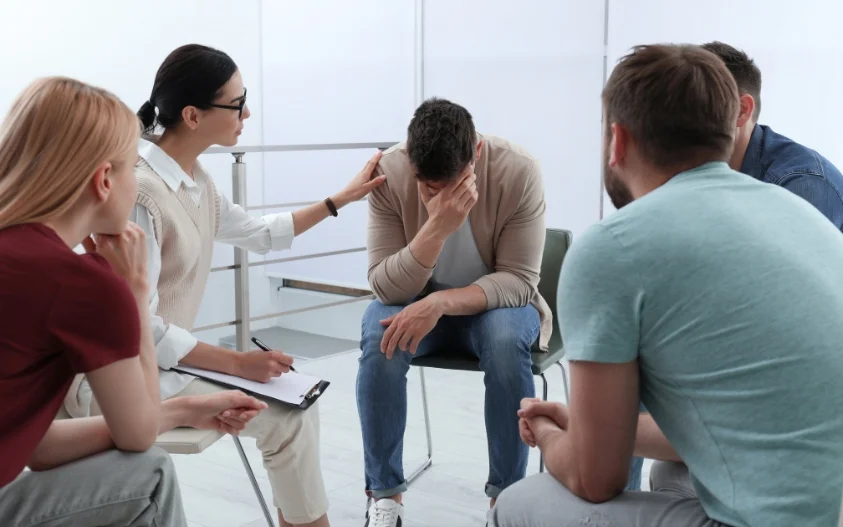24/7 Helpline:
(866) 899-221924/7 Helpline:
(866) 899-2219
Learn more about Group Therapy centers in Missoula County

Other Insurance Options

Kaiser Permanente

Horizon Healthcare Service

Providence

United Health Care

Amerigroup

BHS | Behavioral Health Systems

Anthem

Cigna

Self-pay options

ComPsych

Multiplan

MVP Healthcare

Lucent

Health Partners

Health Net

UMR

Sliding scale payment assistance

Humana

MHNNet Behavioral Health

Sutter

Teen Challenge – Missoula Women’s Campus
Teen Challenge Missoula Women’s Campus in Missoula, Montana is a drug and alcohol addiction rehab pr...

Providence Saint Patrick Hospital – Mental Health Services
Providence Saint Patrick Hospital - Mental Health Services is a private hospital located in Missoula...

Missoula Addiction Services
Missoula Addiction Services is a private rehab located in Missoula, Montana. Missoula Addiction Serv...

Ideal Option Missoula
Ideal Option is a substance abuse treatment center located in Missoula, MT. The center prides itself...

St. Patrick Hospital – Urgent Mental Health
Providence St. Patrick Hospital in Missoula, Montana, features a neurobehavioral medicine department...

Western Montana Mental Health Center – Adult
Western Montana Mental Health Center – Adult is a private rehab located in Missoula, Montana. Wester...

Western Montana Addiction Services – Adolescent Program
Western Montana Addiction Services – Adolescent Program is a private rehab located in Missoula, Mont...



























































































Certified Counseling Service
Certified Counseling Service is a private rehab located in Missoula, Montana. Certified Counseling S...

AA – Alcoholics Anonymous – North Orange Street
AA – Alcoholics Anonymous – North Orange Street is a non-profit rehab located in Missoula, Montana. ...

Crawford Rehabilitation Services
Crawford Rehabilitation Services is a private rehab located in Missoula, Montana. Crawford Rehabilit...

Montana Assistance Program
Montana Assistance Program is a private rehab located in Missoula, Montana. Montana Assistance Progr...

Cascade Rehabilitation Managemant
Cascade Rehabilitation Managemant is a private rehab located in Missoula, Montana. Cascade Rehabilit...

AWARE
AWARE is a private rehab located in Missoula, Montana. AWARE specializes in the treatment of dual di...

Board Certified Rehabilitation
Board Certified Rehabilitation is a private rehab located in Missoula, Montana. Board Certified Reha...

Recovery Center Missoula
Recovery Center Missoula is a drug and alcohol rehab located in Missoula, Montana for adults. It off...

Community Care – Insight
Community Care – Insight is a private rehab located in Missoula, Montana. Community Care – Insight s...

Western Montana Mental Health Center – Share House
Western Montana Mental Health Center – Share House is a private rehab located in Missoula, Montana. ...

Acupuncture Detox & Stress Reduction Clinic
Acupuncture Detox & Stress Reduction Clinic is a private rehab located in Missoula, Montana. Acupunc...

3 Rivers Mental Health Solutions
3 Rivers Mental Health Solutions is a private rehab located in Missoula, MT. 3 Rivers Mental Health ...

Full Circle Counseling Solutions
Full Circle Counseling Solutions is a private rehab located in Missoula, Montana. Full Circle Counse...

Teen Challange
Teen Challange is a private rehab located in Missoula, Montana. Teen Challange specializes in the tr...

Community Counseling Solutions
Community Counseling Solutions is a non-profit rehab located in Condon, OR. Community Counseling Sol...







































































